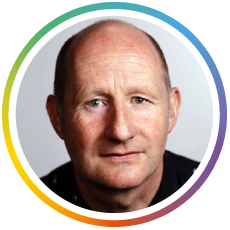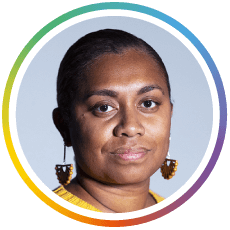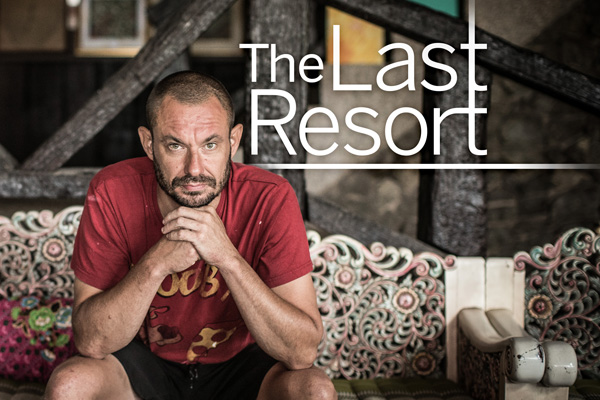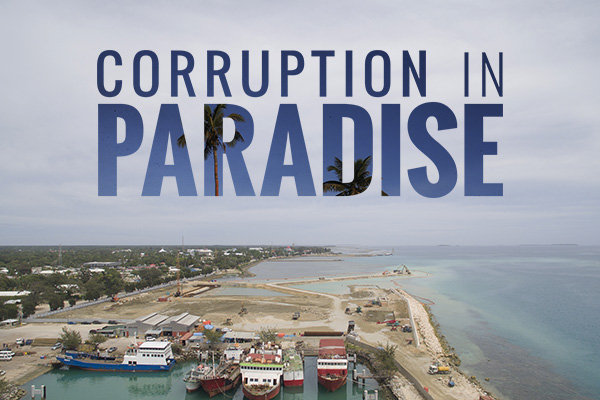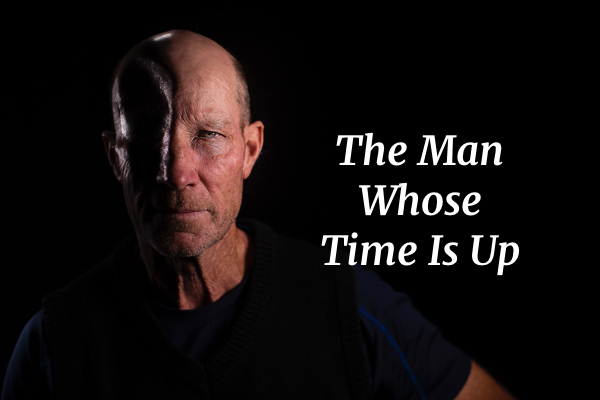
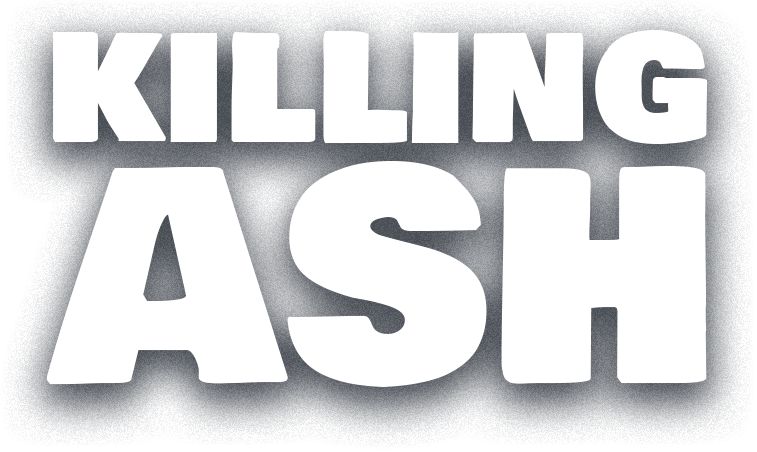
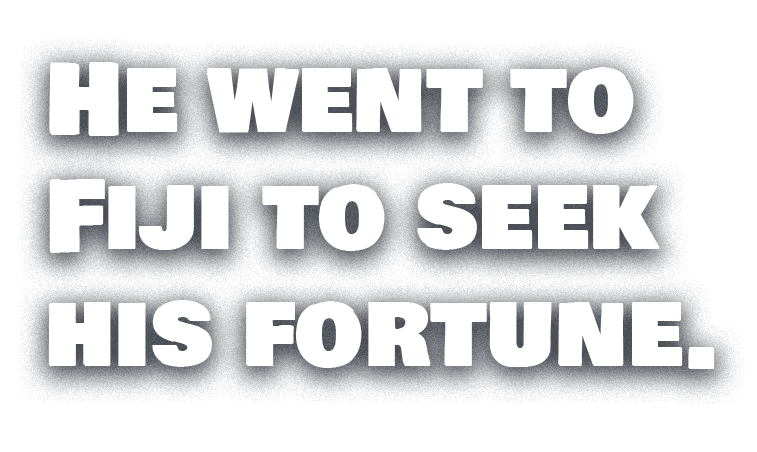
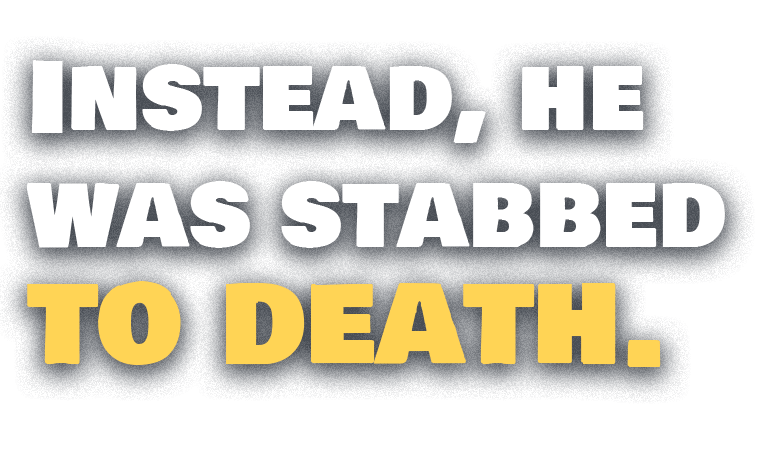
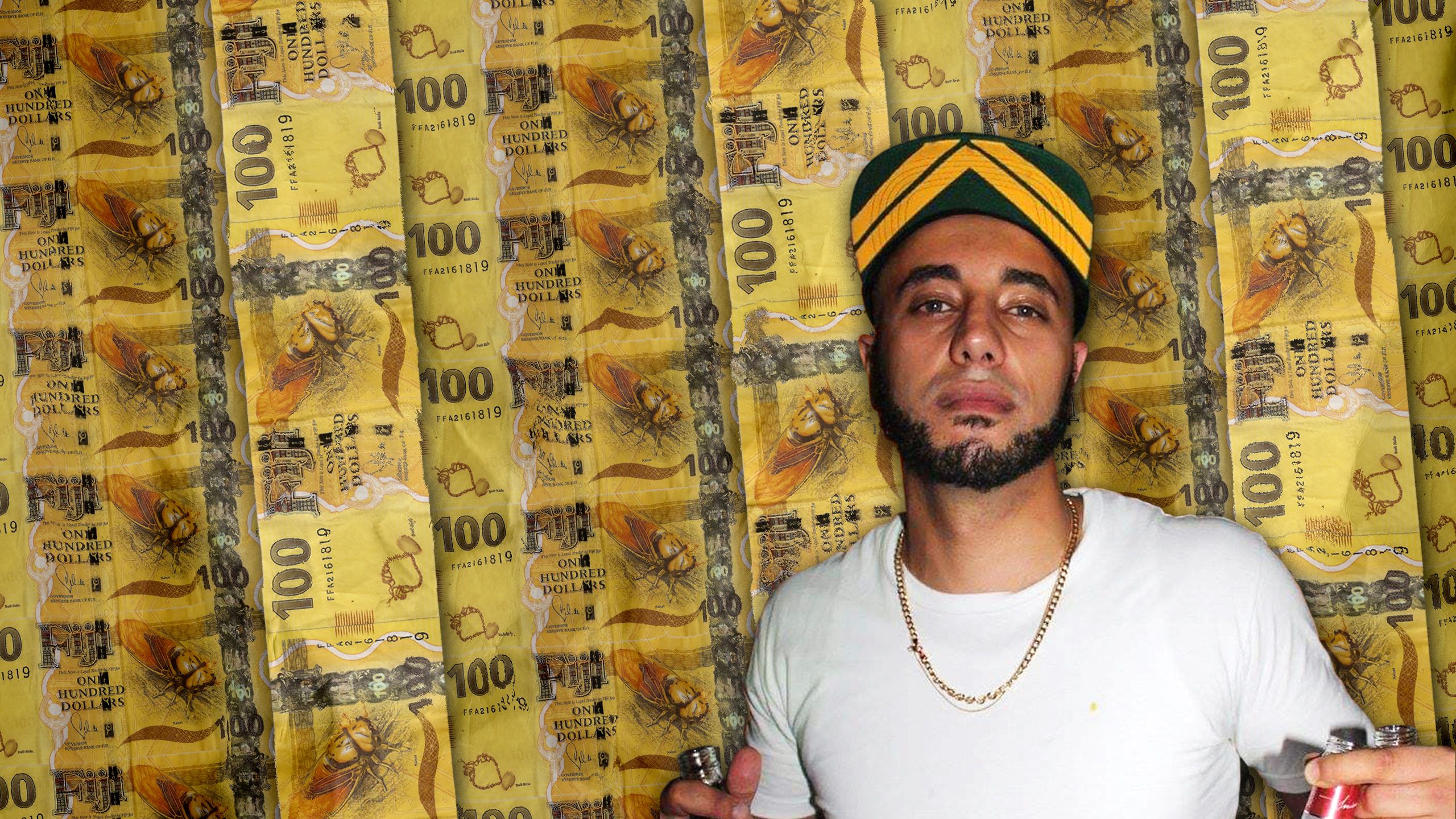
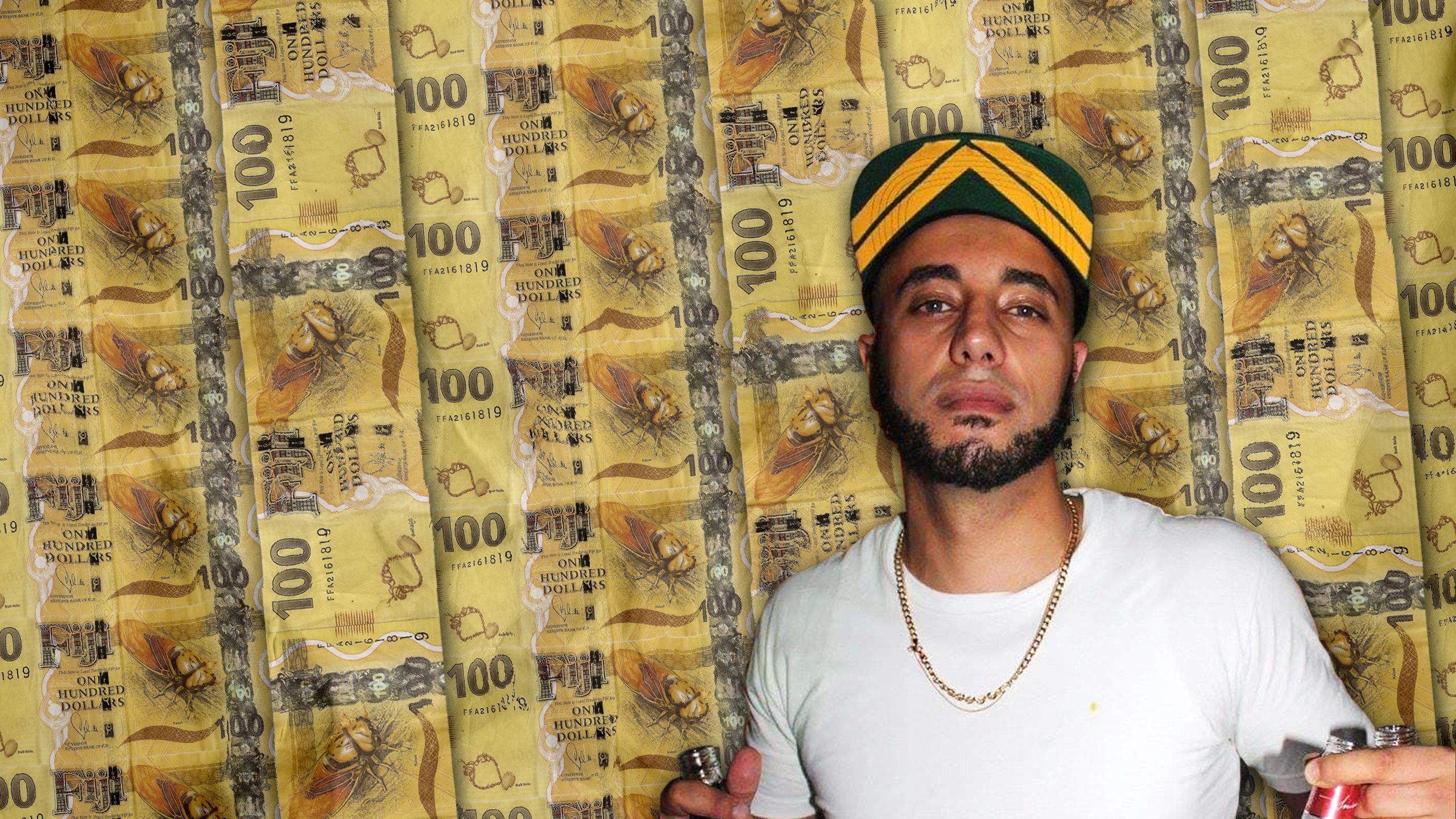
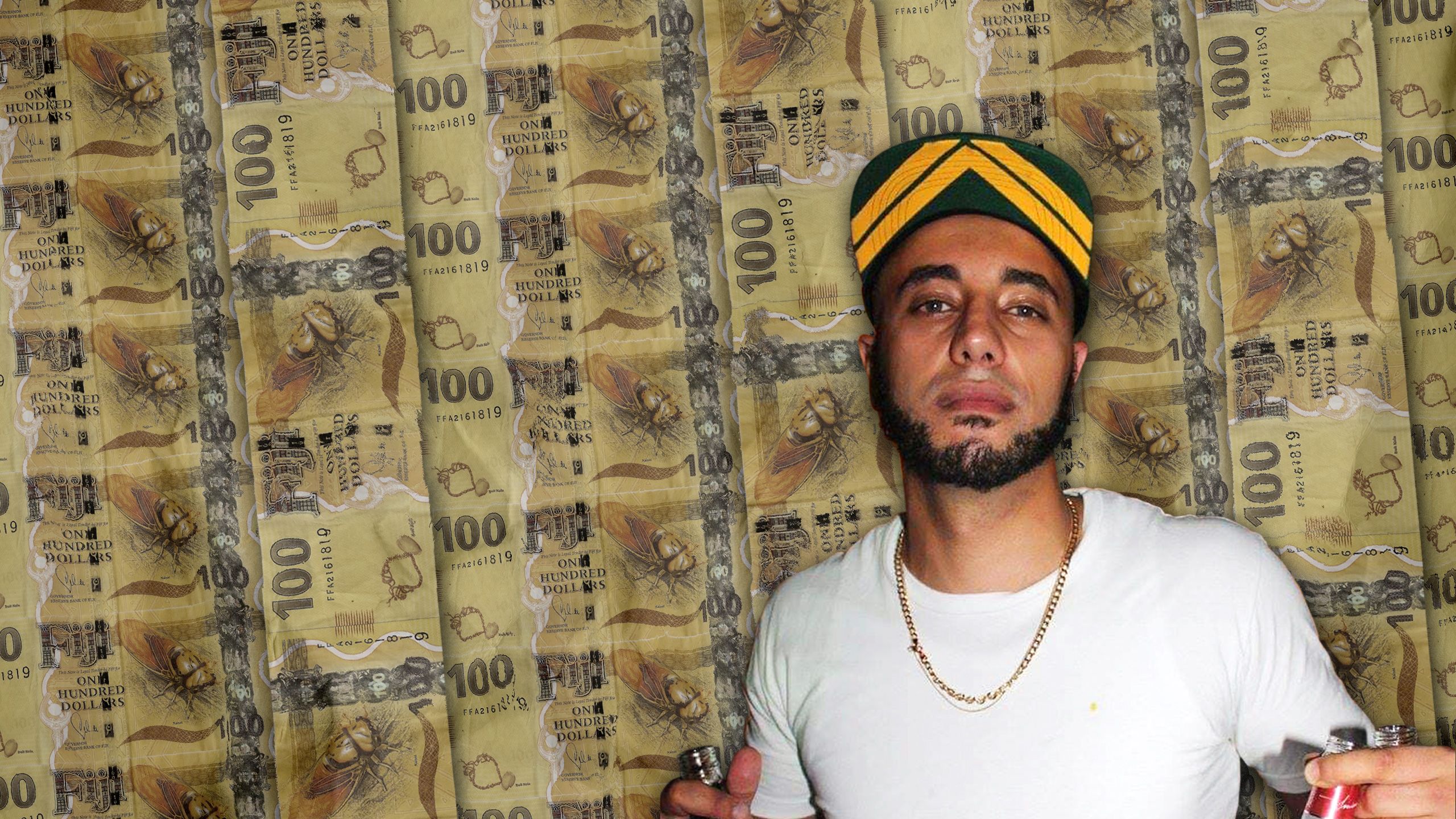
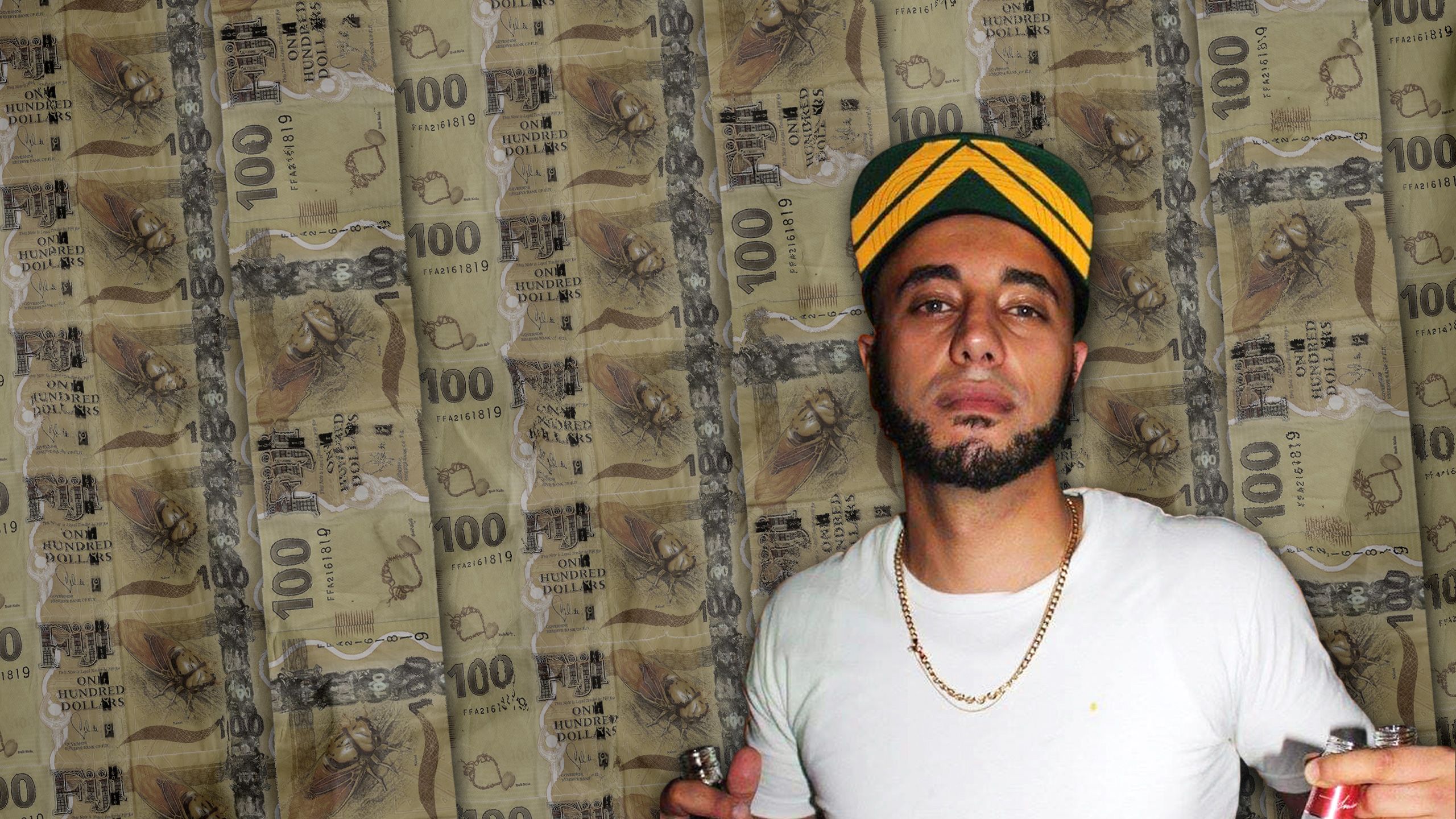
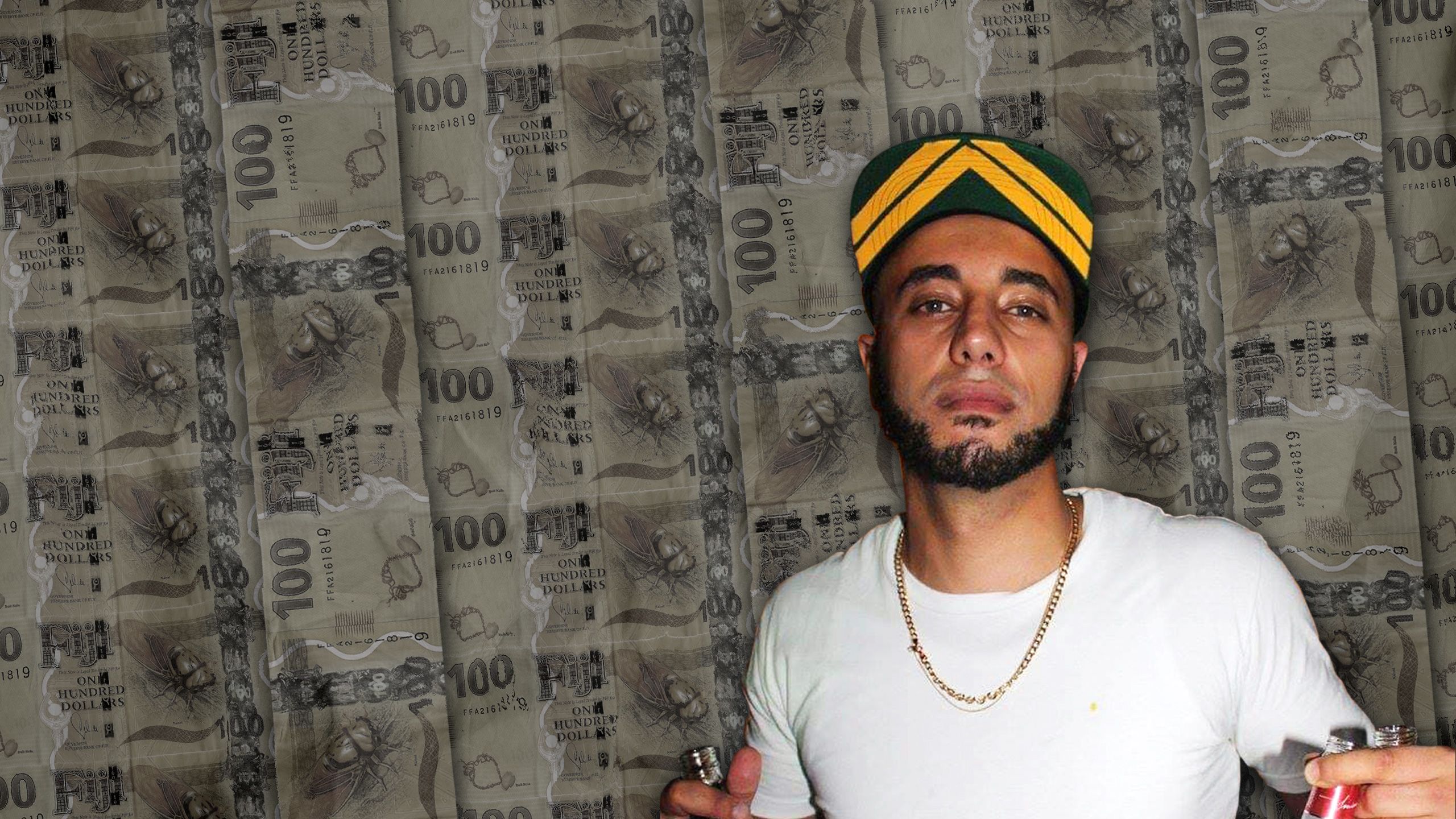
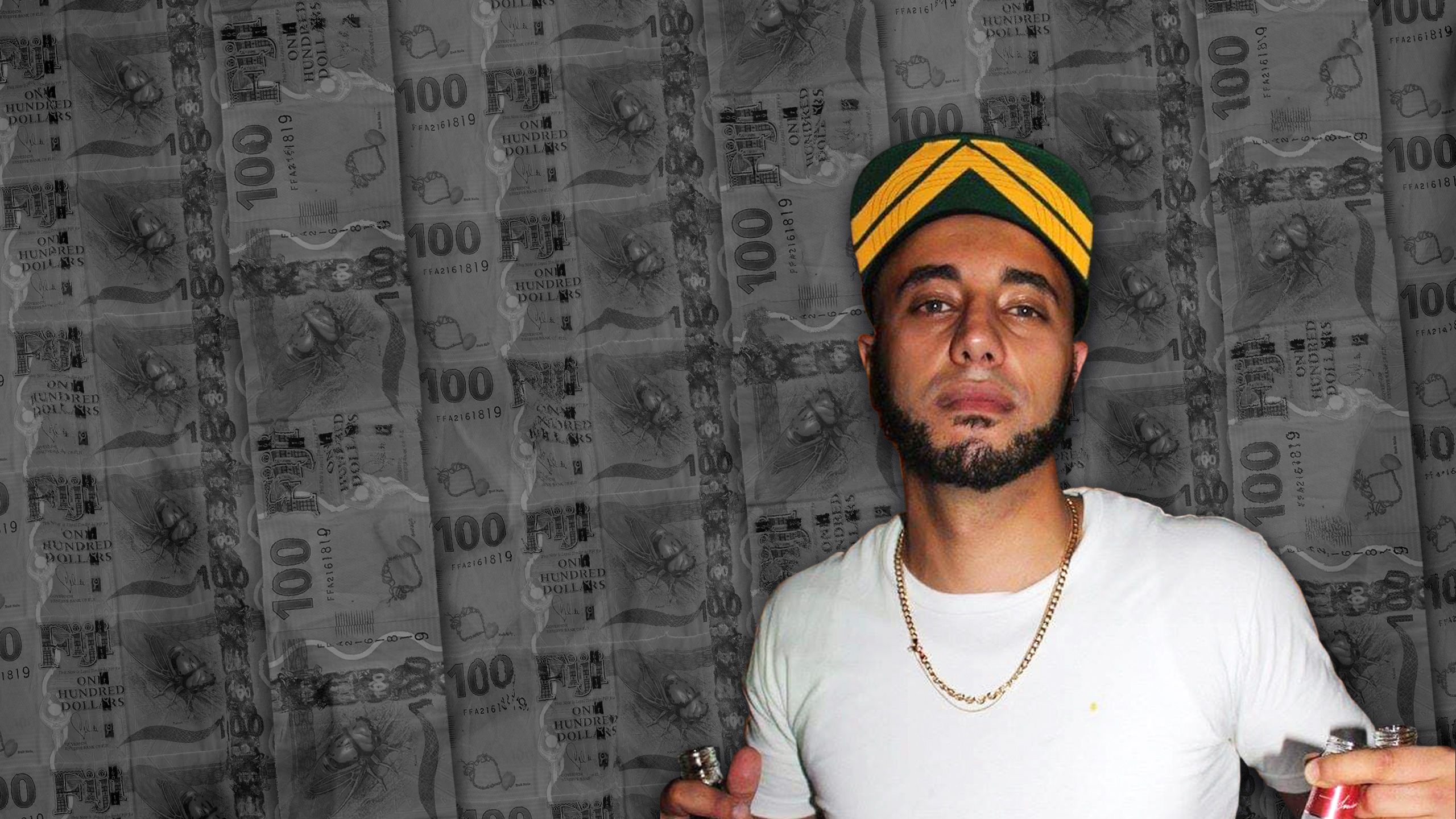

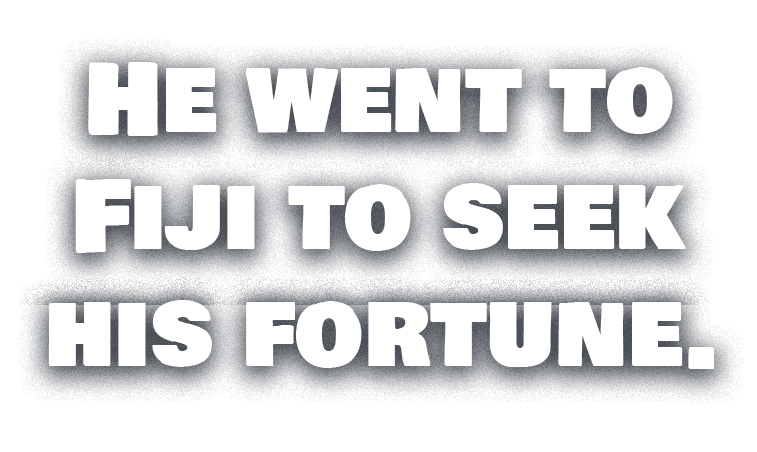
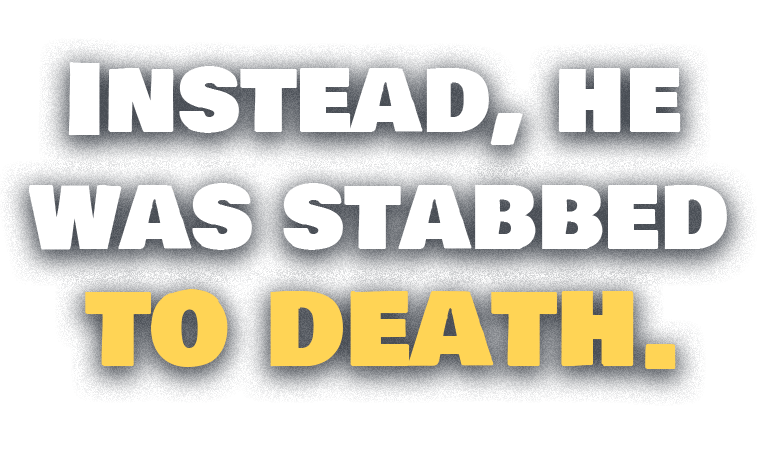






A taro business, a love triangle, a botched cocaine deal, a shocking killing. TONY WALL and TORIKA TOKALAU investigate the complicated life and violent death of a Kiwi businessman in Fiji.
I'm going to lose this baby, thought Bulou Caeway as she prepared to give birth at Lautoka Hospital in Fiji's west.
Surely all the stress must have impacted on the foetus.
She hadn't been sleeping or eating since her partner, Ashkan Farsani, was stabbed to death in Suva two weeks earlier, on the same day they were supposed to go shopping for baby supplies.
Now, her fears seemed to be coming true as doctors couldn't detect a heartbeat or feel the baby moving.
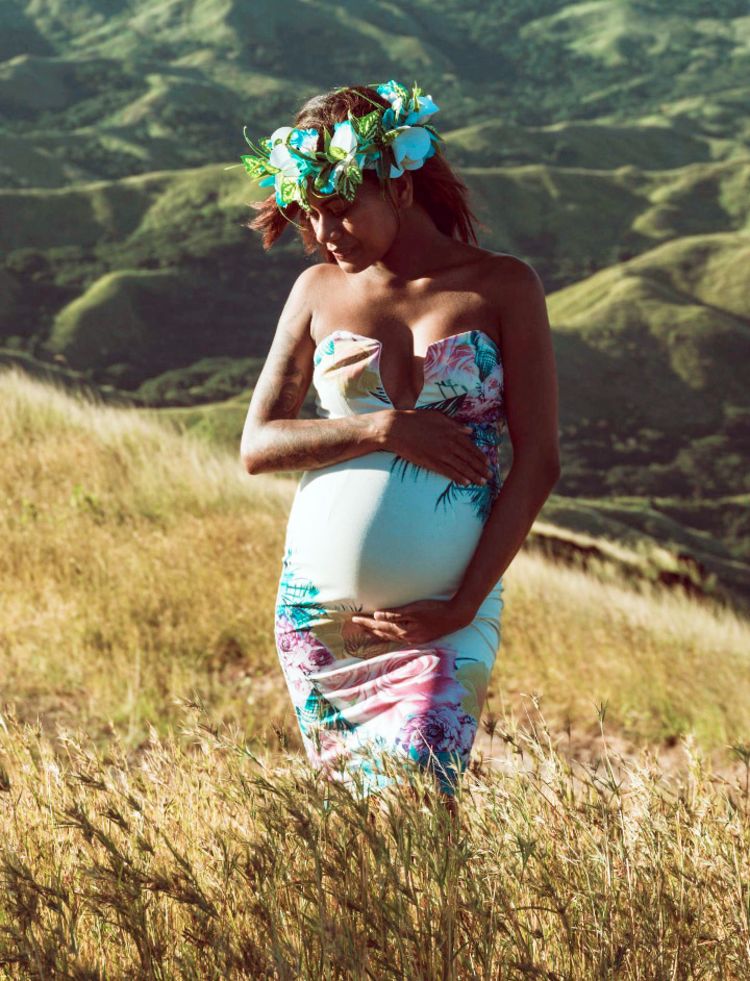
Bulou Caeway
Bulou Caeway
‘Please, Ash is gone, I need something to remember him,’ she prayed.
About two hours after she got to the hospital on May 22, the baby arrived and let out a cry, the best sound in the world for the anxious 25-year-old.
Thank God, she thought.
Bulou burst into tears as the nurse lay the little girl on her chest.
"Ash, I really wish you were here," she whispered.
She named the baby, her first, Maya Aurora.
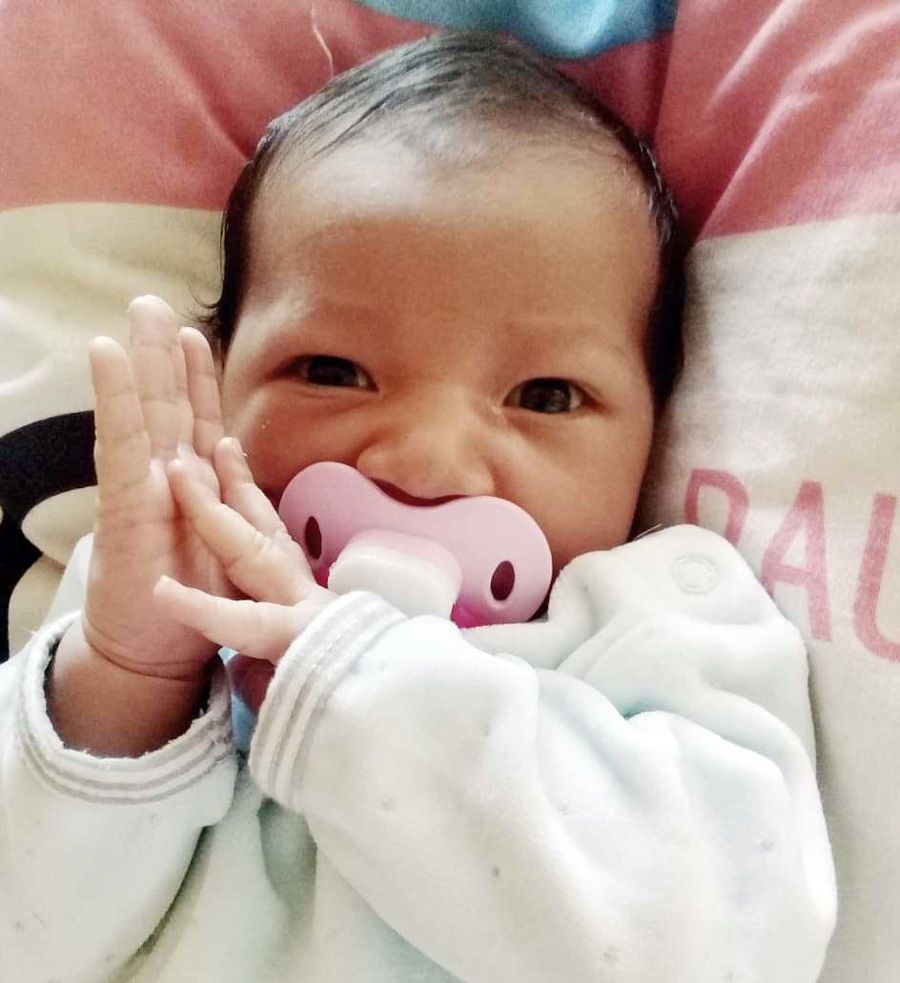
Maya was born just two weeks after her father was killed.
Maya was born just two weeks after her father was killed.
Two thousand kilometres south, in Auckland, the other woman in Farsani's life was grieving.
Unaisi Cerei and Farsani were childhood sweethearts from Mt Roskill Grammar who had a three-year-old son together, Cyrus.
Both Cerei and Caeway believed they were Ash’s partner - they knew of each other’s existence but he’d told them both similar stories, that the other woman was just a fling.
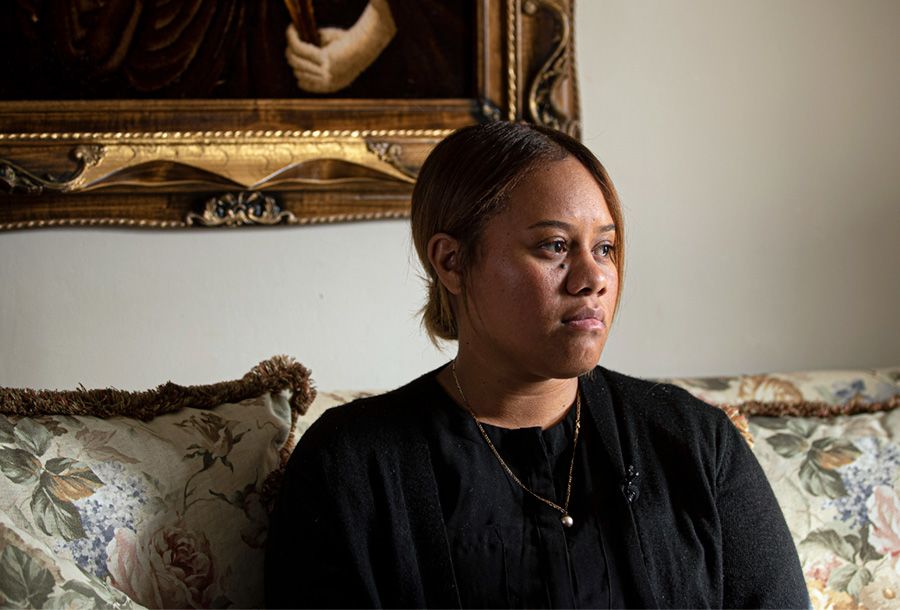
Unaisi Cerei
Unaisi Cerei
Farsani had moved to Fiji in 2017 to make his fortune exporting taro, to secure Cyrus’ future.
Cerei, born in New Zealand to Fijian parents, heard from a cousin in Fiji that Farsani had been killed, but she didn't believe it.
She tried to call him; no answer. That's weird, she thought, Ash is always near his phone and never leaves me hanging.
Then a family friend got in touch - he'd identified Farsani's body in the morgue.
Cerei and Farsani's parents - who live together in Auckland - got on a plane filled with happy holidaymakers and cried most of the way to Fiji.
At the morgue they found Farsani lying on a table, three stab wounds visible on his chest and back.
They held him, kissed him, hugged him.
All police would tell them was that Farsani had been dumped at Suva's Colonial War Memorial Hospital and died a short time later.
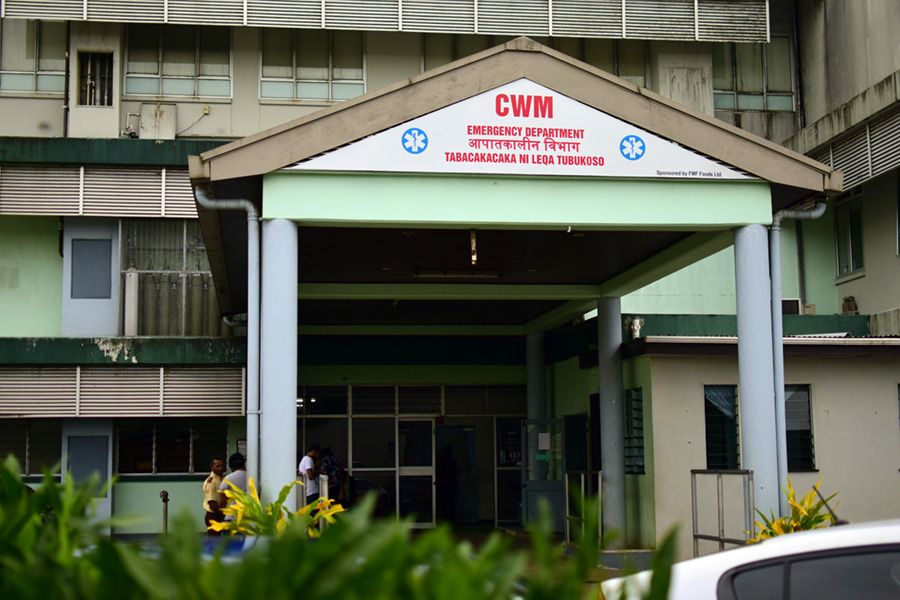
The Colonial War Memorial Hospital in Suva, where Farsani was dropped on May 8.
The Colonial War Memorial Hospital in Suva, where Farsani was dropped on May 8.
Two men had handed themselves in at Nabua police station in Suva's north and were now in custody.
Rumours swirled - one story went that Farsani was stabbed at a nightclub after being robbed.
Cerei was adamant that his body should come back to New Zealand for burial.
I'm not leaving him in a country that killed him, she thought.
As they prepared to take the body home, the family wondered, what happened?
How could a hard-working family man with big dreams for his future - their "lionheart" - have been killed in a sleepy South Pacific tourist mecca, dead at 28?
IN BUSINESS
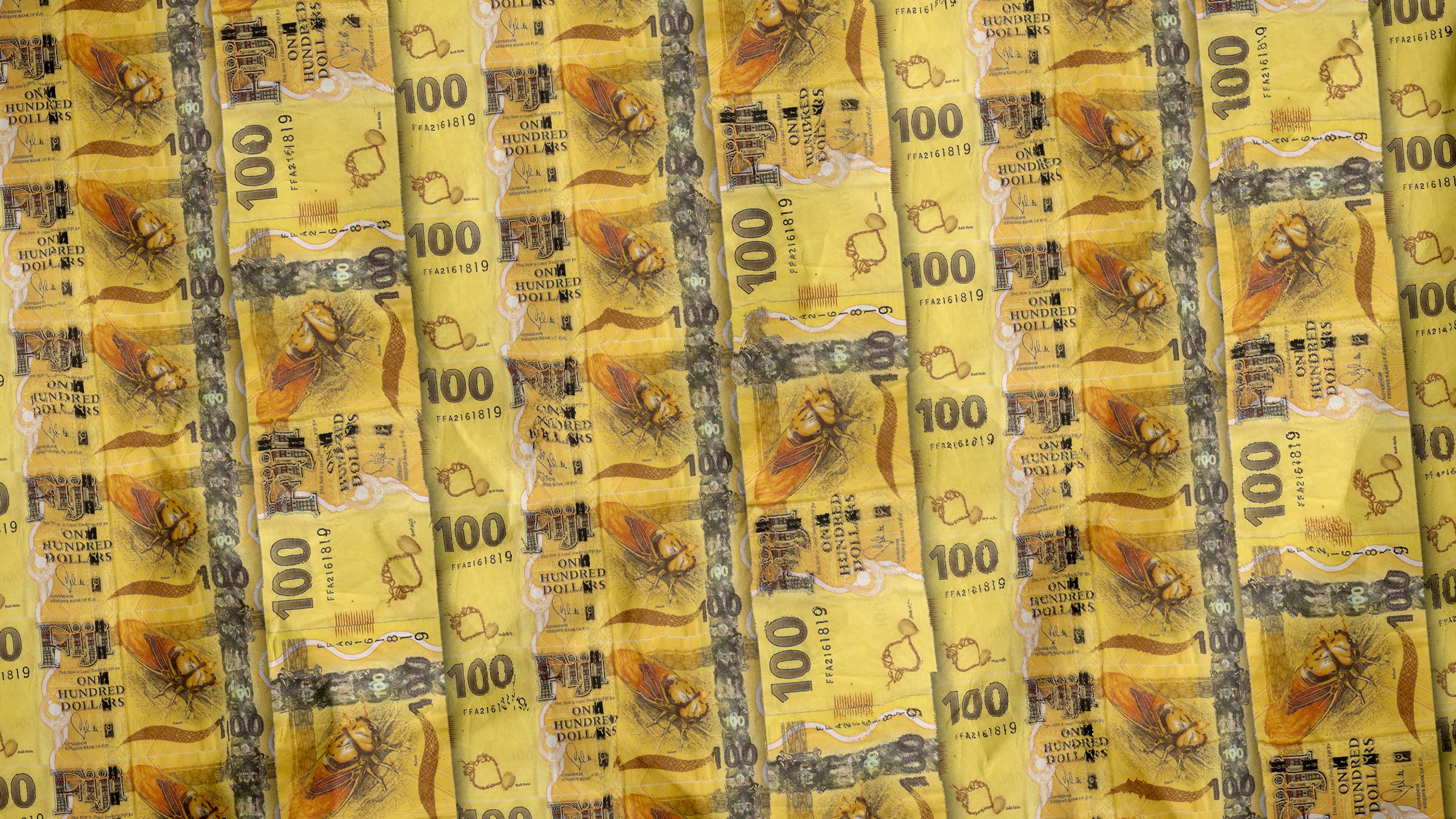
Just after lunchtime on New Year's Day, 1991, as new year celebrations continued in Isfahan, central Iran, Nasrine Farsani gave birth to a boy who she called Ashkan, after an ancient Persian king.
Her husband, Hossein Rikhthegarzadeh, was captivated by this boy with green eyes.
"When I saw him, my heart dropped because he was so beautiful."
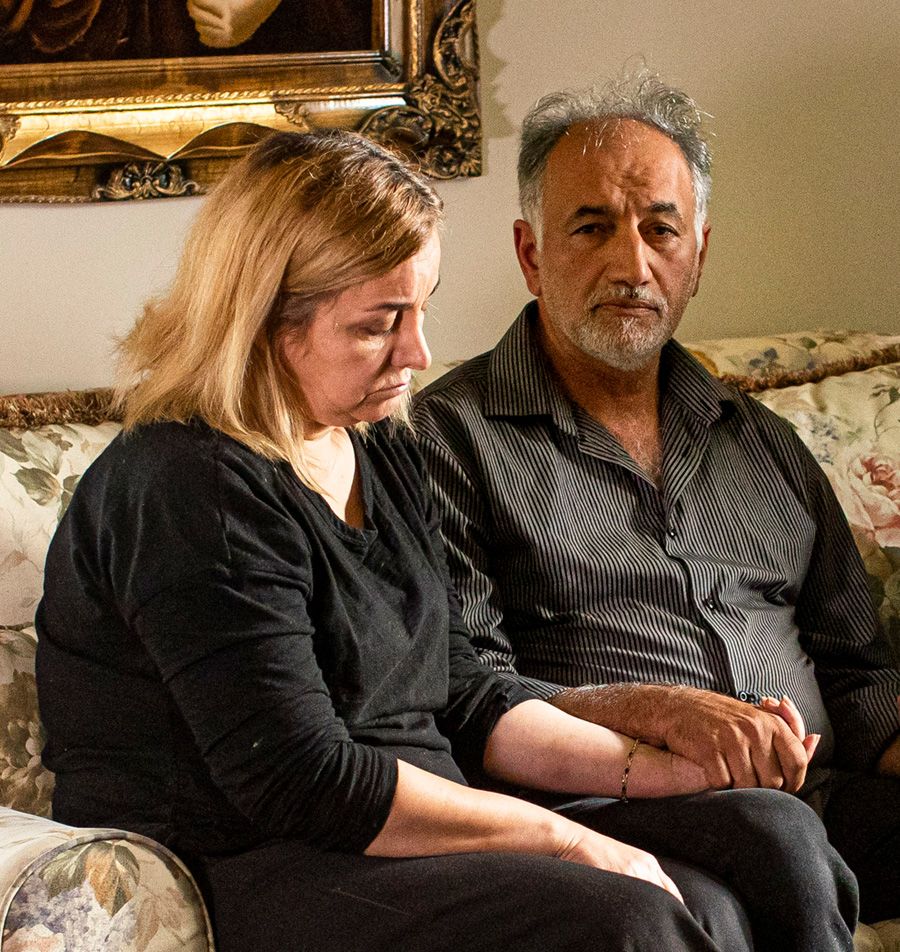
Ashkan's parents, Nasrine Farsani and Hossein Rikhthegarzadeh.
Ashkan's parents, Nasrine Farsani and Hossein Rikhthegarzadeh.
Hossein came to New Zealand as a refugee when Ashkan was four - his wife and son followed a year later.
Another son, Aryan, was born in New Zealand.
They lived in Napier, Tauranga and Auckland's North Shore before settling in Mt Roskill, a working class suburb 7km south of the city centre, one of the most ethnically diverse places in the country.
Although his surname was Rikhthegarzadeh, Ash would use his mother's name to make it easier for Kiwis.
At school he loved maths and physics. He was a bit of a clown, always making classmates laugh.
Even as a boy, he was thinking of ways to make money.
At 15, he and a friend got jobs delivering taro - known as dalo in Fiji - across Auckland.
Farsani studied the business closely and would say to his mate, "we could get into this ourselves".
But it was a trip to the dentist that would determine his early career path. He complained they'd charged too much - and declared that was the profession for him.
He studied dentistry at Otago University and after graduation, practised at clinics in Avondale and Manurewa, looking after children's teeth.
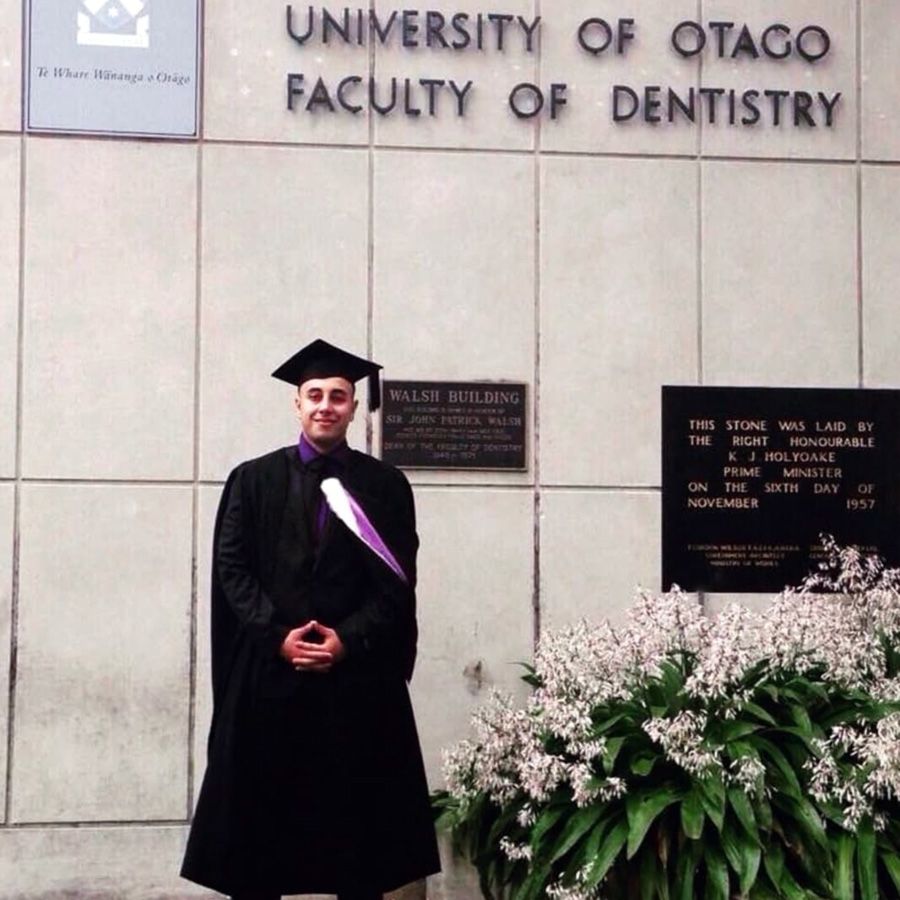
Farsani on graduation day at the Otago University dentistry school.
Farsani on graduation day at the Otago University dentistry school.
He had plans to open his own practice in South Auckland.
While he worked hard, he was also loved sports, liked to party and was a bit of a ladies’ man.
In 2016, Farsani's life took a new direction when he joined the Ponsonby Ponies Rugby League Club.
Through the club he met members of the King Cobras, New Zealand's oldest gang formed in Ponsonby in the 1950s by Samoan immigrants, with a fearsome reputation built on murders, kidnappings, extortion and drug dealing.
Farsani had always had a natural affinity for Pacific Islanders growing up in Mt Roskill.
"He was the only Arab dude that would hang out with the island boys, he was never afraid and he never backed down from anything," recalls a friend.
It helped that he was good at boxing.
One of the King Cobras he became friendly with was Marvin Niuula, known as Maunga (Mountain) for his enormous frame.
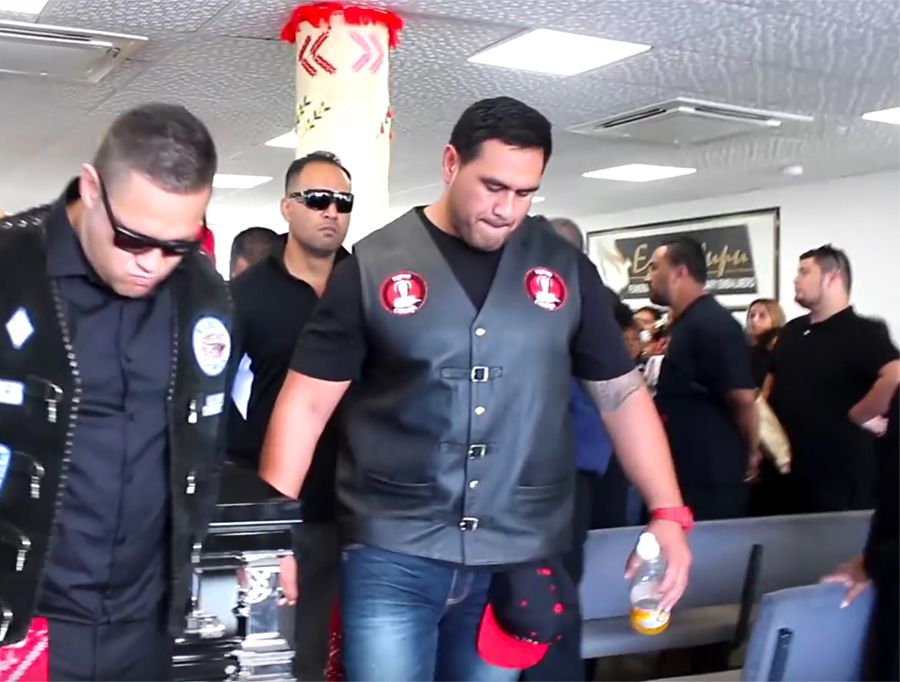
Marvin Niuula, right, was a pallbearer at a drug dealer's funeral.
Marvin Niuula, right, was a pallbearer at a drug dealer's funeral.
Niuula - who did not respond to messages from Stuff - was a pallbearer at the funeral of Henry Afakasi, who was one of the directors of a large methamphetamine ring.
In March 2017, Farsani and Niuula set up a company, Pacific United Traders, with the idea of importing taro for the large Pacific Island community in South Auckland.
Farsani was listed as a shareholder, but Stuff understands much of the investment came from a silent partner, Louis Carnachan, a senior King Cobra.
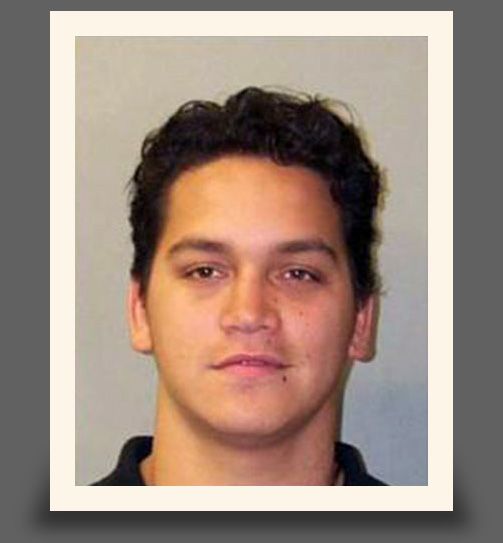
Louis Carnachan
Louis Carnachan
In March 2018, police announced they had warrants for Carnachan's arrest for methamphetamine supply - he was dangerous and should not be approached, they warned.
At one point, the armed offenders squad pulled over a Pacific United Traders van as it was delivering taro in Manurewa. The driver claimed he was forced to the ground at gunpoint.
Carnachan was not there, but was later rounded up and is now on remand in prison awaiting trial.
While some of Farsani’s friends disapproved of his gangster associates, his family welcomed Niuula, to the point where he spent last Christmas with them.
They insist that Farsani wasn't a King Cobra member himself.
The taro business struck teething problems early on. Taro importing is highly competitive and buyers demand fresh, high-quality product.
Wholesalers complained about the quality of some shipments and alleged Farsani's firm was selling the product direct to retailers at the same, or even lower, prices - leaving them with hundreds of bags of taro they couldn't get rid of.
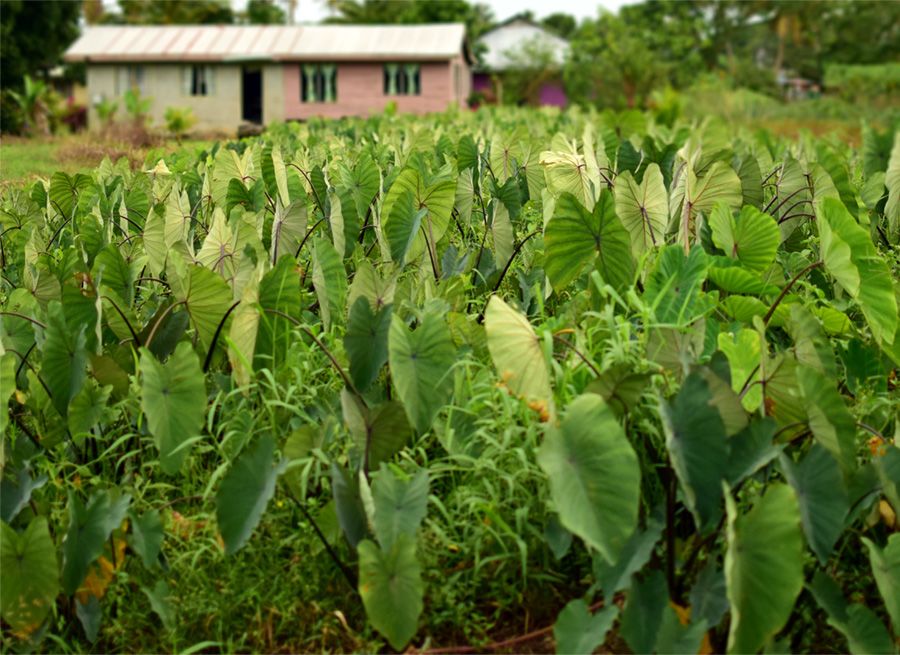
A taro (dalo) crop near Suva.
A taro (dalo) crop near Suva.
In July 2017, Farsani announced to his family that he was moving to Fiji to be closer to the product source.
He'd been buying taro wholesale, but he and his partners realised that if they established their own farms, they could cut out the middle man and make more money.
Farsani had never been to Fiji and his family warned he wouldn't know anyone.
But he was stubborn, and once he'd made up his mind, there was no turning back.
He assured them he would make lots of money, buy his parents a new house, do some travel and retire at 35.
He told his dad he was also interested in kava for its medical benefits - using the plant as a numbing agent for dental treatment - and was in talks with a German company.
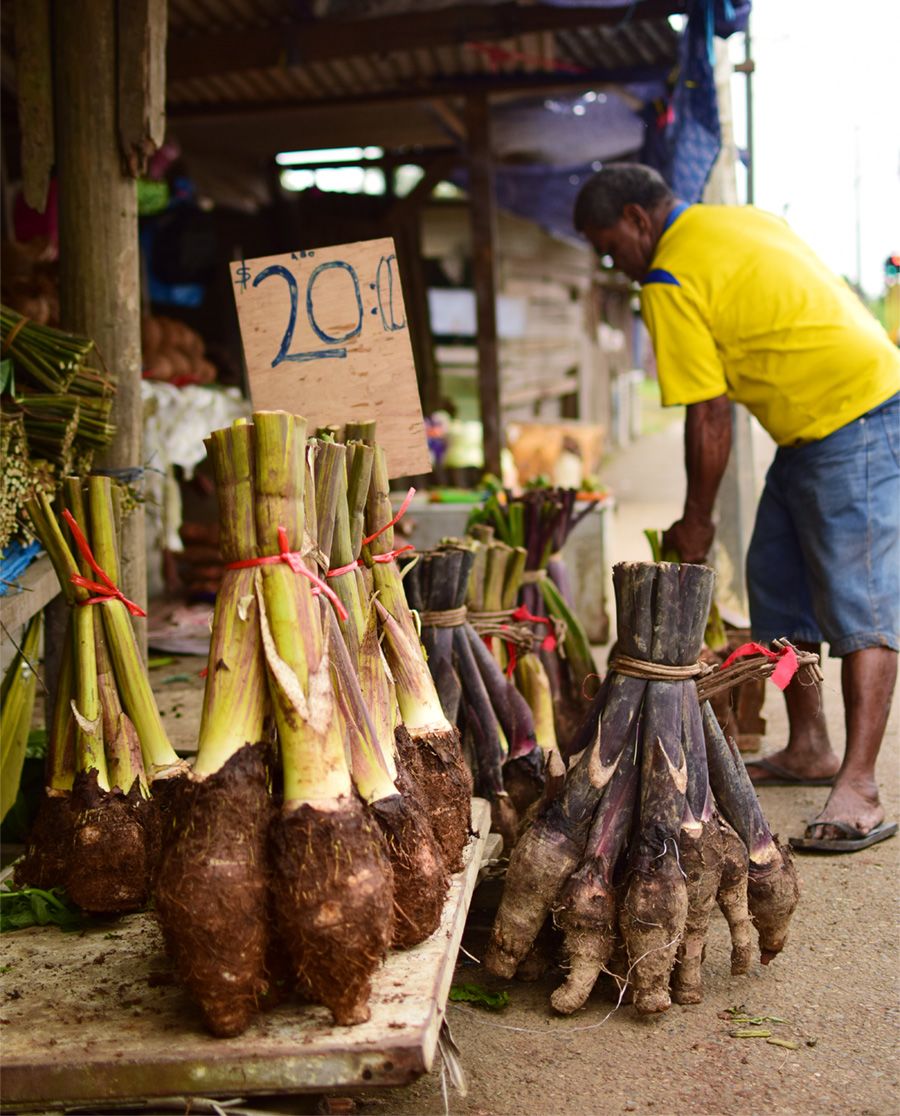
Taro is a staple food at markets in Fiji.
Taro is a staple food at markets in Fiji.
Early in 2019 he happily told his father, "I can make 14 different things from kava".
Farsani based himself on the island of Taveuni, 220km north-east of Suva, where he established a taro farm.
He also had a crop near the capital, and would travel backwards and forwards between Taveuni and Suva.
A MATCH MADE ON TINDER

In July 2018, Nadi real estate agent Bulou Caeway, who'd studied her trade in Auckland, was chatting on Tinder to a handsome young exporter called Ash, who mentioned he was looking for land.
"You're chatting with the right person, I can help you out," she told him.
Farsani travelled to Nadi, on the west coast of Viti Levu, and they talked business, but soon realised there was a mutual attraction and started dating.

Caeway and Farsani started dating after first discussing real estate.
Caeway and Farsani started dating after first discussing real estate.
Caeway liked his intelligence, that he was humble and full of bright ideas.
In August they rented a flat together in downtown Suva, and by September, Caeway told Farsani she was pregnant.
Farsani was excited at the news he would be a dad again, Caeway says, telling her he was no longer with his "baby mama", Cerei.
They started planning their future, she says, the idea being that she would move to Taveuni once the baby arrived.
Farsani also encouraged her to try a new career as a fashion designer, making cloaks from masi (tapa) for export. It's a project she's continued since his death.
Caeway knew Farsani had friends who were in the King Cobras, and she'd been warned to stay away from him, that he was not a good man.
"No, I don't believe any of the things people say," she told the person, who she knew was associated with Cerei and figured was just trying to scare her off.
In January, Niuula arrived in Fiji to see how the business was going. He and Farsani flew to Taveuni to inspect the taro farm.
He stayed about a week, celebrating Farsani's birthday, and Caeway dropped the big man back at the airport.
As far as Caeway was aware, the business was going well, but Farsani didn't share much, and she didn't pry.
On Monday, May 6, Farsani rang to say he was in Suva for meetings with the lands department. Strangely, he was staying at a hotel, rather than their apartment.
Caeway was at her mother's in Lautoka - they agreed to meet on Wednesday to go shopping for baby supplies.
Caeway would never speak to Farsani again.
He didn't answer his phone on Tuesday and it was still diverted on Wednesday.
This wasn't like Ash, she thought, he always takes my calls.
Maybe he went out and is hungover or something, she told herself.
By Friday, she was really starting to worry, and then she got a message on Instagram from one of Ash's footy friends.
"Sorry for your loss," it said.
Caeway was confused - what was going on?
A STABBING ON QELEYA RD

Qeleya Rd is a nondescript cul-de-sac just out of Lami, a town north-west of downtown Suva.
It runs off Queens Rd, the main route from Suva to Nadi.
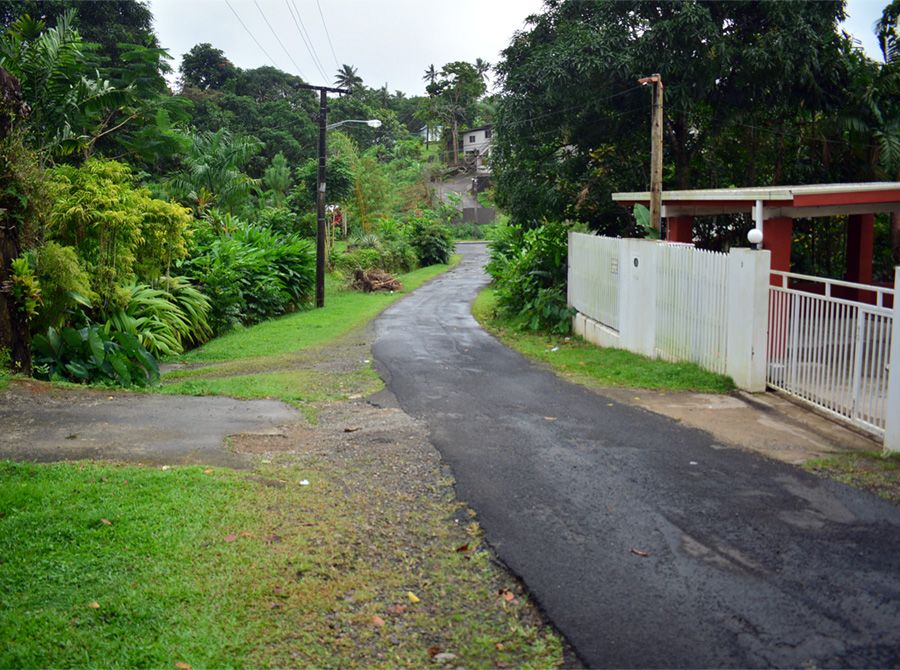
Qeleya Rd, Lami.
Qeleya Rd, Lami.
At about 1.30pm on Wednesday, May 8, a car containing five men pulled into the quiet street, surrounded by bush and a few houses, and parked up.
Farsani, who was in the front passenger seat, got out and approached a maroon Toyota Land Cruiser containing three men.
According to court documents seen by Stuff, Farsani was there to buy cocaine, having put the word out the previous December that he was looking to buy.
Cocaine is becoming more prevalent in the South Pacific as South American drug lords ship their product towards the lucrative Australian and New Zealand markets.
Smuggling methods range from cruise ships to yachts, commercial flights and shipping containers, according to Jeremy Douglas, of the United Nations Office on Drugs and Crime.
The chances of successfully smuggling a small amount of cocaine in a container along with agricultural products such as taro?
"Probably good odds," Douglas says.
Plenty of people have been giving it a go.
Last year, a 29-year-old Fijian national who tried to hide 50kg of cocaine in a shipment of bottled water from Fiji to Sydney was busted by Australian police.
In February, police raided the Suva home of a 24-year-old Canadian man and found 39 bars of white powder, found to be cocaine with an estimated value of $31m.
And in March former Australian horse trainer John Nikolic was jailed in Fiji for 23 years for importing $20m of cocaine aboard his luxury yacht.
As hard as it is for his family to accept, it appears Farsani wanted in on this action.
Fiji police allege he told one of his contacts he'd been directed by a gang in New Zealand to buy 1kg of cocaine, and he had cash.
Word quickly got around that Farsani was a buyer. Among those involved in the deal to one degree or another were a surf instructor, a farmer, a taxi driver and a customer service rep.
Court documents suggest Farsani shook hands with the men from the Toyota and was told the supplier, who hadn't arrived yet, wanted to see the money first.
Farsani opened a waist bag and showed $100 Fijian notes, saying he had $40,000 and would bring the rest once he'd tested the merchandise.
A short time later the seller arrived with a backpack containing the cocaine.
Farsani tested it and was happy, but said he had less than the asking price and asked if he could negotiate for the price to drop.
The seller wouldn't agree and started walking back to a taxi that was waiting for him.
It was at this point that things went south, fast.
1 Qeleya Rd, Lami
This is where the alleged cocaine deal went down.
2 Colonial War Memorial Hospital, Suva
Ash Farsani Was dropped here with stab wounds.
3 Two men handed themselves in at Nabua Police Station
According to the court documents, a man from Farsani's group snatched the backpack and ran back to their car with it, pursued by the seller.
There was a scuffle inside the vehicle.
A resident who witnessed part of the incident and gave a statement to police declined to comment to Stuff, saying he feared people would come after him.
"A lot of dealers live around here."
As Farsani's vehicle fled the scene, chased by the taxi, his associates noticed thick blood pouring out of his ribs on the left side.
They managed to lose the taxi, and drove to the hospital. Farsani got out and collapsed on the road, while the car sped off.
Farsani was rushed inside but was unresponsive and was pronounced dead.
Farsani's associates told police they hadn't accompanied him into the emergency department because they were worried someone might take the cash and cocaine.
The drugs and money were dropped with an associate of the group who was a bank officer.
Two men from the other group later handed themselves into police. Only one, Rusiate Raiwalui, 28, has been charged with murder. No-one has been charged with drugs offences.
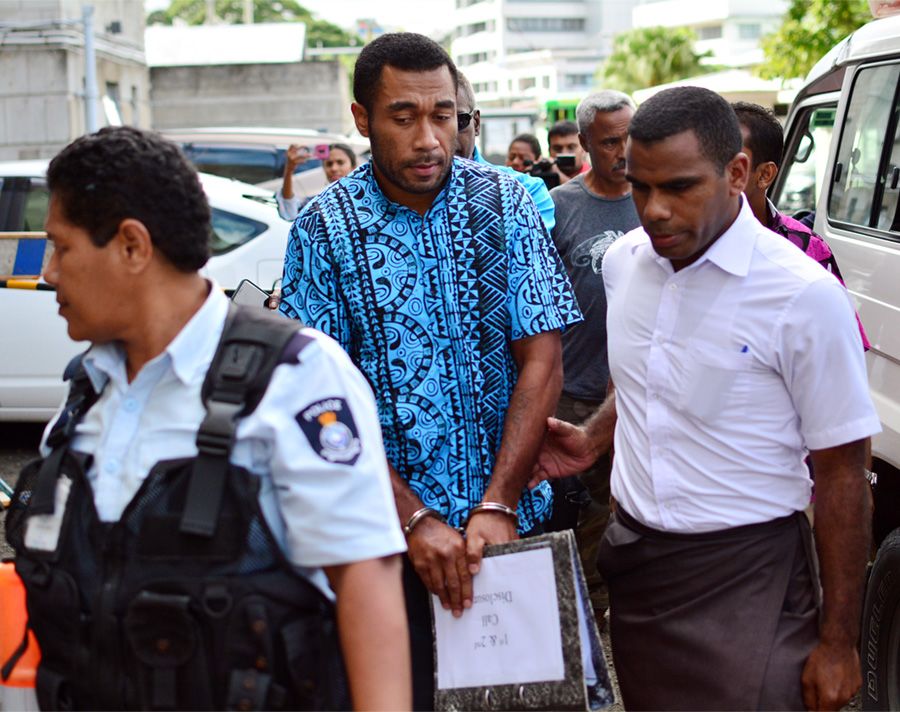
Rusiate Raiwalui leaves court after his arrest for murder.
Rusiate Raiwalui leaves court after his arrest for murder.
Raiwalui’s brother, who was present in Qeleya Rd on the day, says his lawyer has told him not to comment, but he believes police have rushed their investigation so they can close the case. He says New Zealand police should get involved.
‘SOMETHING TO TELL YOU’

Caeway, unable to raise Farsani, finally got hold of his mother on WhatsApp.
"We're in Fiji, we have something to tell you," Nasrine Farsani said.
Caeway dropped the phone. It was true, Ash was dead.
Her father drove her to Suva, where she met her partner's parents for the first time in the worst possible circumstances.
They just held her, and touched her belly. A little Ash.
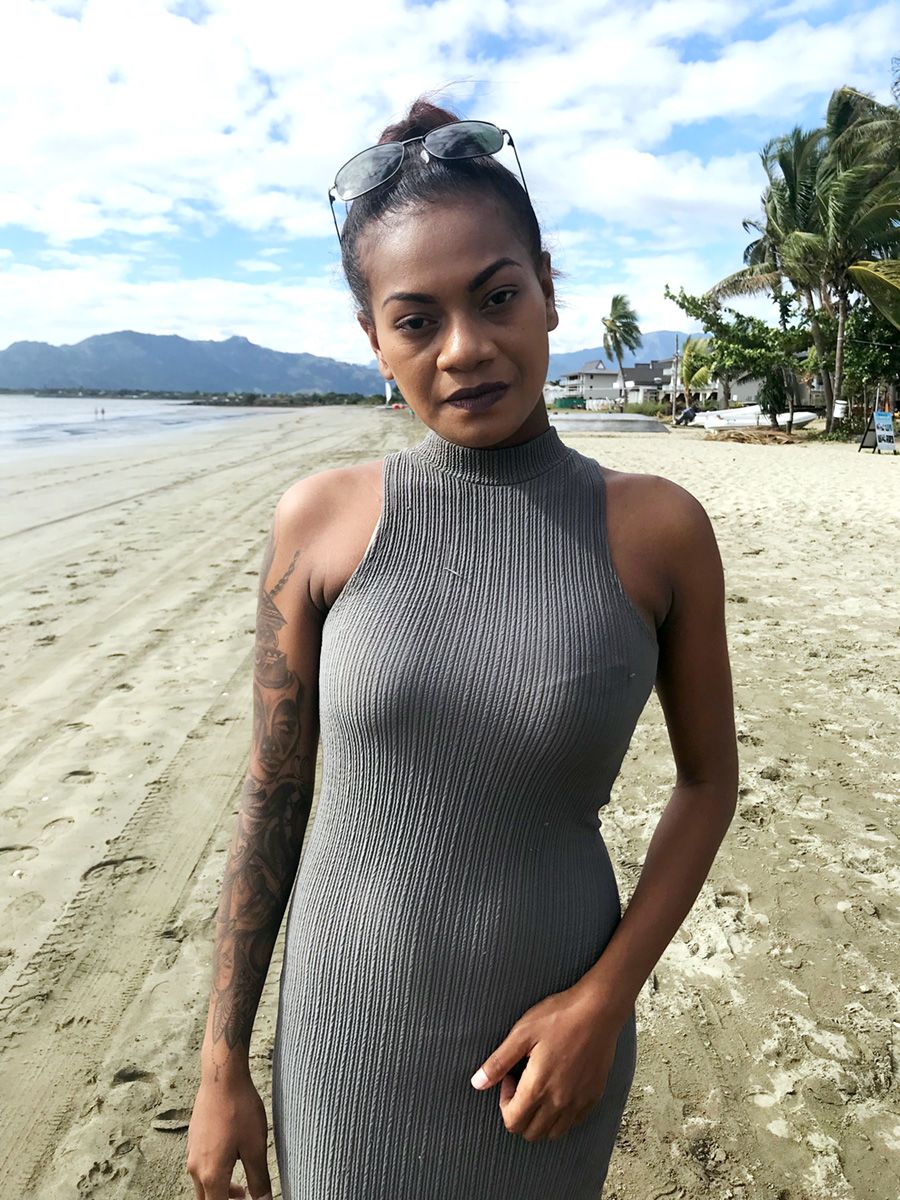
Caeway on the beach at Nadi.
Caeway on the beach at Nadi.
There was drama when morgue staff wouldn't let Caeway see the body.
"There’s someone already listed here as his wife," they told her.
That was Cerei, who had never married Farsani.
"No way, you're not doing this to me," Caeway said, insisting that she was the partner and wouldn't leave until she saw the body.
As she headed towards the room where the body lay, she brushed past Cerei. They didn’t speak.
When she finally got to see Farsani, it seemed incongruous that such a strong man was so vulnerable.
He was a boxer. She had watched as he once took down several drunk men by himself at a nightclub.
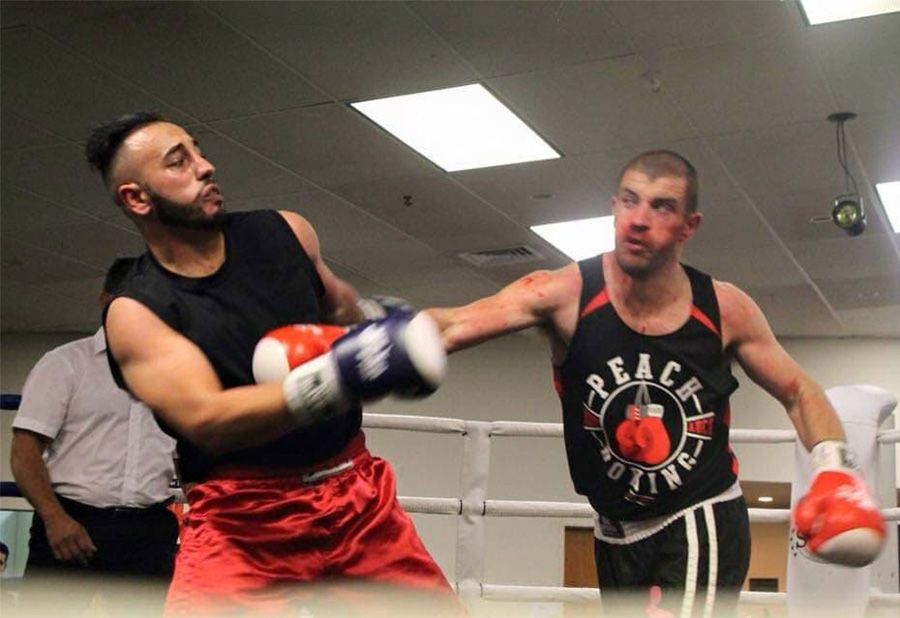
Farsani, left, in his boxing days.
Farsani, left, in his boxing days.
She couldn't believe that he hadn't been able to defend himself.
It would be the last time Caeway would see Farsani - doctors wouldn't let her fly to New Zealand for the funeral because of her advanced pregnancy.
Caeway says New Zealand police need to get involved in the investigation because there is more to the killing, others involved, and she doesn't trust Fijian police to get it right.
"We all want justice for Ash."
Fijian police ignored repeated requests for comment.
A spokesperson for New Zealand police says they are not involved in the Farsani case but have liaised with Fijian authorities and will continue to do so "if required".
‘A LION’S HEART’

Farsani's friends and family gathered at Waikumete Cemetery in West Auckland, New Zealand's largest, for his funeral.
Among the mourners were Niuula and several men wearing black hoodies emblazoned with the word Aiga (family) - one of the King Cobras' mottos.
A letter from inside prison by Carnachan was read out.
One of Farsani's oldest mates says you could tell who his real friends were - they were the ones crying, while the gang associates stood around looking staunch.

Cerei spoke, telling the crowd Farsani's memory will live on through their son.
"Everyone that looks at Cyrus will see Ash ... he has his ambition and his heart.
"For the rest of my life, for the rest of ours, I will love you."
His father, Rikhthegarzadeh, said his son had worked hard for his family.
"He was a very good boy, he always wanted to make us proud. His heart was so kind, very kind and simple."
An old neighbourhood friend of Farsani's, who doesn't want his name published, says he didn't like some of the people he was associating with here and in Fiji.
"I didn't trust them to have his back. They were just using him for his money.
"When I found out he was dead, I knew straight away it was true.
“I believe he walked into an ambush, Ashkan is not dumb, we grew up in Mt Roskill, we were street smart.
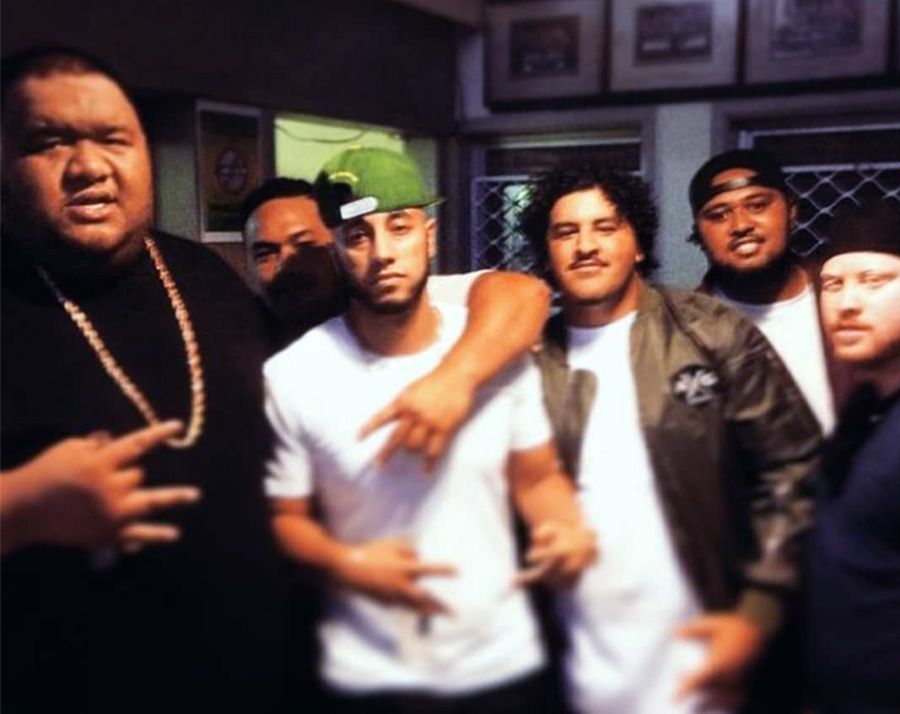
Farsani with some of his old neighbourhood friends.
Farsani with some of his old neighbourhood friends.
"I always told him to do everything himself, never to trust anyone, because no-one knew him or had his back like we did."
Cerei and Farsani's parents remain mystified by his death.
They can't believe he would get involved in drugs and put his boy’s future at risk.
"My son was successful, why would he want to involve himself in some rubbish thing?" asks his father.
Farsani had been due back in the country at the end of May, Cerei says.
"I don't know why he stayed so long [in Fiji] but he wanted to make sure everyone was taken care of. He had a lion's heart, he is the head of our pride."
Fiji police need to give Farsani's parents more information, she says, so they can have peace. Until told details by Stuff, the family didn’t know what happened to him.
"We don't understand why it's so hard for someone just to tell us."
In Fiji, Caeway is also struggling to process what happened.
Getting involved in a drug deal just didn't seem like the Ash she knew. "Maybe someone wanted him to do it."
She's been getting financial help for the baby from Farsani's parents, but they've asked her for a DNA test to prove little Maya is their granddaughter.
Caeway says she's happy to do that and has begun the process, but you just have to look at Maya to see the resemblance to her dad.
She says she and Farsani had planned to get married in September this year and had told their parents but no-one else.
She describes the stabbing as an "animal act" that ruined her life just as it was becoming "so cool".
One day she'll have to tell Maya about her dad.
"That's one of the hardest things...what am I going to tell her? All I can think of is that her father worked so hard … he always prioritised his son and his family."
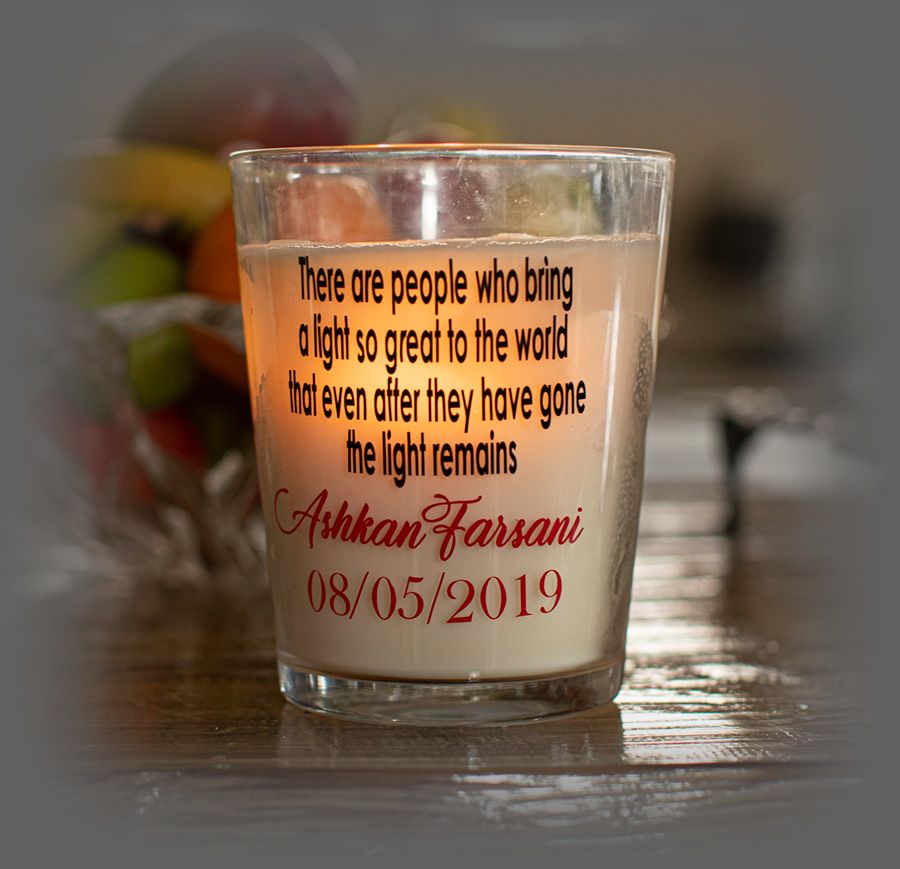
Words: Tony Wall and Torika Tokalau
Visuals: Jason Dorday, Tony Wall, David White and Jovesa Naisua
Design & layout: Aaron Wood
Editor: John Hartevelt

